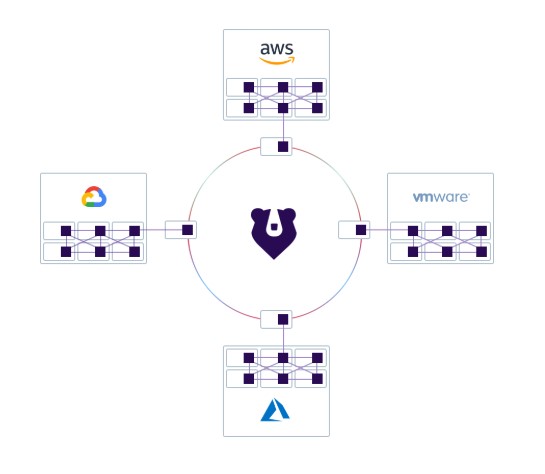API management platform Kong today announced that it is donating its open-source Kuma control plane technology to the Cloud Native Computing Foundation (CNCF). Since Kong built Kuma on top of the Envoy service mesh — and Envoy is part of the CNCF’s stable of open-source projects — donating it to this specific foundation was likely an obvious move.
The company first open-sourced Kuma in September 2019. In addition to donating it to the CNCF, the company also today launched version 0.6 of the codebase, which introduces a new hybrid mode that enables Kuma-based service meshes to support applications that run on complex heterogeneous environments, including VMs, Kubernetes clusters and multiple data centers.
Kong co-founder and CTO Marco Palladino says that the goal was always to donate Kuma to the CNCF.
“The industry needs and deserves to have a cloud native, Envoy-based control plane that is open and not governed by a single commercial entity,” he writes in today’s announcement. “From a technology standpoint, it makes no sense for individual companies to create their own control plane but rather build their own unique applications on proven technologies like Envoy and Kuma. We welcome the broader community to join Kuma on Slack and on our bi-weekly community calls to contribute to the project and continue the incredible momentum we have achieved so far.”
Kuma will become a CNCF Sandbox project. The sandbox is the first stage that projects go through to become full graduated CNCF projects. Currently, the foundation is home to 31 sandbox projects, and Kong argues that Kuma is now production-ready and at the right stage where it can profit from the overall CNCF ecosystem.
“It’s truly remarkable to see the ecosystem around Envoy continue to develop, and as a vendor-neutral organization, CNCF is the ideal home for Kuma,” said Matt Klein, the creator of the Envoy proxy. “Now developers have access to the service mesh data plane they love with Envoy as well as a CNCF-hosted Envoy-based control plane with Kuma, offering a powerful combination to make it easier to create and manage cloud native applications.”

Comments
Post a Comment